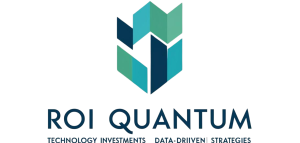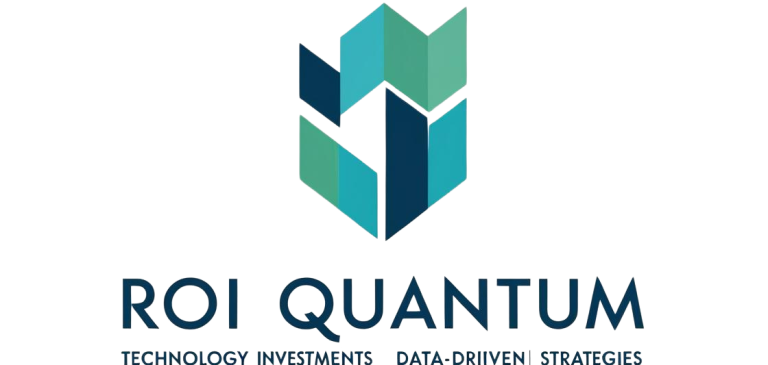How AI is Revolutionizing Lead Generation: The Future of Smart Prospecting
In today’s hyper-competitive business landscape, lead generation is more important than ever. But traditional methods of identifying and nurturing potential customers are increasingly being overshadowed by the power of Artificial Intelligence (AI). As companies strive to gain a competitive edge, AI is revolutionizing how leads are generated, nurtured, and converted, providing businesses with faster, smarter, and more efficient ways to connect with their target audience. In this blog, we’ll dive into how AI is transforming the world of lead generation, making it more effective and personalized than ever before.
1. Automating Lead Identification and Prospecting:
One of the most significant ways AI is changing lead generation is by automating the process of identifying and qualifying prospects. Traditionally, lead generation involved manual research, cold outreach, and guesswork. AI removes much of this burden by using algorithms and data analytics to identify potential leads with greater accuracy and speed. AI systems can analyze large datasets, such as social media activity, website visits, and historical sales data, to identify patterns and signals that indicate a potential lead’s interest. Machine learning algorithms can then rank these leads based on their likelihood to convert, enabling sales teams to focus their efforts on the most promising prospects. This level of automation not only saves time but ensures that businesses are targeting leads that are a good fit for their products or services.
2. Hyper-Personalization for Effective Outreach:
Gone are the days when one-size-fits-all marketing campaigns produced results. Today’s customers expect personalized experiences tailored to their unique needs and preferences. AI enables businesses to deliver this level of personalization at scale, making outreach efforts far more effective.
AI can analyze a prospect’s past interactions, online behavior, and purchasing history to generate insights about their preferences and pain points. With this data, AI tools can craft highly personalized messages that resonate with the individual, increasing the chances of engagement. For example, AI can suggest which products or services a lead is most likely to be interested in, the best time to reach out, and even the most effective language and tone to use in communication. In the future, AI-powered personalization will become even more advanced, enabling businesses to tailor every aspect of their lead generation strategy to the individual preferences and behaviors of their target audience.
3. Predictive Lead Scoring:
One of the most powerful applications of AI in lead generation is predictive lead scoring. Traditionally, lead scoring has been a manual process where sales teams rank prospects based on predefined criteria, such as demographic information or engagement levels. AI takes this process to the next level by analyzing vast amounts of data and using machine learning algorithms to predict which leads are most likely to convert.
AI-powered lead scoring systems can analyze historical data, such as past sales, customer interactions, and engagement patterns, to build a predictive model. This model can then rank leads in real-time based on their likelihood of conversion, enabling sales teams to prioritize high-quality leads and focus their efforts where they’re most likely to succeed. Predictive lead scoring not only improves the efficiency of sales teams but also increases the accuracy of lead qualification, resulting in higher conversion rates and better overall performance.
4. Chatbots for Lead Nurturing and Qualification:
AI-powered chatbots are becoming indispensable tools in the lead generation process. These chatbots can engage with website visitors in real-time, answering questions, providing information, and guiding prospects through the buyer journey. What makes AI-driven chatbots so effective is their ability to qualify leads instantly by analyzing their responses and behavior during the interaction.
For example, a chatbot can ask a series of qualifying questions, such as inquiring about the prospect’s budget, needs, or timeline for purchasing. Based on the responses, the chatbot can determine whether the lead is a good fit for the business and either route them to a sales representative or continue nurturing them with relevant content.
Chatbots work 24/7, ensuring that no lead is missed, and they can handle thousands of interactions simultaneously, making them an invaluable asset for scaling lead generation efforts. As AI technology advances, chatbots will become even more intuitive and capable of handling increasingly complex conversations, further improving their lead nurturing and qualification capabilities.
5. Content Generation and Targeted Campaigns:
Content marketing is a key driver of lead generation, but creating high-quality, targeted content can be time-consuming and resource-intensive. AI is revolutionizing this process by automating content creation and distribution, allowing businesses to generate engaging, personalized content at scale.
AI-powered content generation tools can create blog posts, email campaigns, social media updates, and even video content tailored to the interests and preferences of specific leads. These tools can analyze audience data to determine what type of content is most likely to resonate with a particular segment, ensuring that businesses are delivering the right message at the right time.
AI also enables hyper-targeted campaigns by analyzing data on audience behavior, demographics, and interests. This allows businesses to create highly specific marketing campaigns that target niche audiences with personalized messages, leading to more effective lead generation and higher conversion rates.
6. Enhanced Data-Driven Insights:
Data is at the core of AI’s impact on lead generation. AI can analyze enormous amounts of data to uncover insights that humans would struggle to identify. This includes trends, patterns, and correlations that reveal the most effective lead generation strategies.
For instance, AI can track which marketing channels generate the most leads, what type of content drives the most engagement, and which campaigns result in the highest conversion rates. With these insights, businesses can continuously refine their lead generation strategies, optimizing them for better performance. In the future, AI will become even more adept at processing unstructured data, such as social media posts, video interactions, and customer reviews. This will give businesses an even deeper understanding of their leads, enabling more informed decision-making and more targeted lead generation efforts.
7. The Future of AI in Lead Generation:
The future of lead generation lies in the hands of AI. As AI technology continues to evolve, we’ll see even more innovative applications that streamline the process of identifying, nurturing, and converting leads. Businesses that embrace AI will be able to generate leads more efficiently, engage prospects more effectively, and ultimately, drive more sales.
AI will enable businesses to become more proactive in their lead generation efforts, anticipating customer needs before they arise and delivering personalized experiences that resonate with their audience. The combination of automation, personalization, and predictive analytics will set businesses apart in an increasingly competitive marketplace.
Conclusion: AI Is the Game Changer for Lead Generation
AI is revolutionizing the way businesses generate and engage with leads. By automating repetitive tasks, providing data-driven insights, and enabling hyper-personalized interactions, AI is transforming lead generation from a labor-intensive process into a smart, scalable, and highly effective strategy. Businesses that leverage AI for lead generation will not only save time and resources but also improve the quality of their leads, resulting in higher conversion rates and greater overall success. The future of lead generation is here – and it’s powered by AI.

